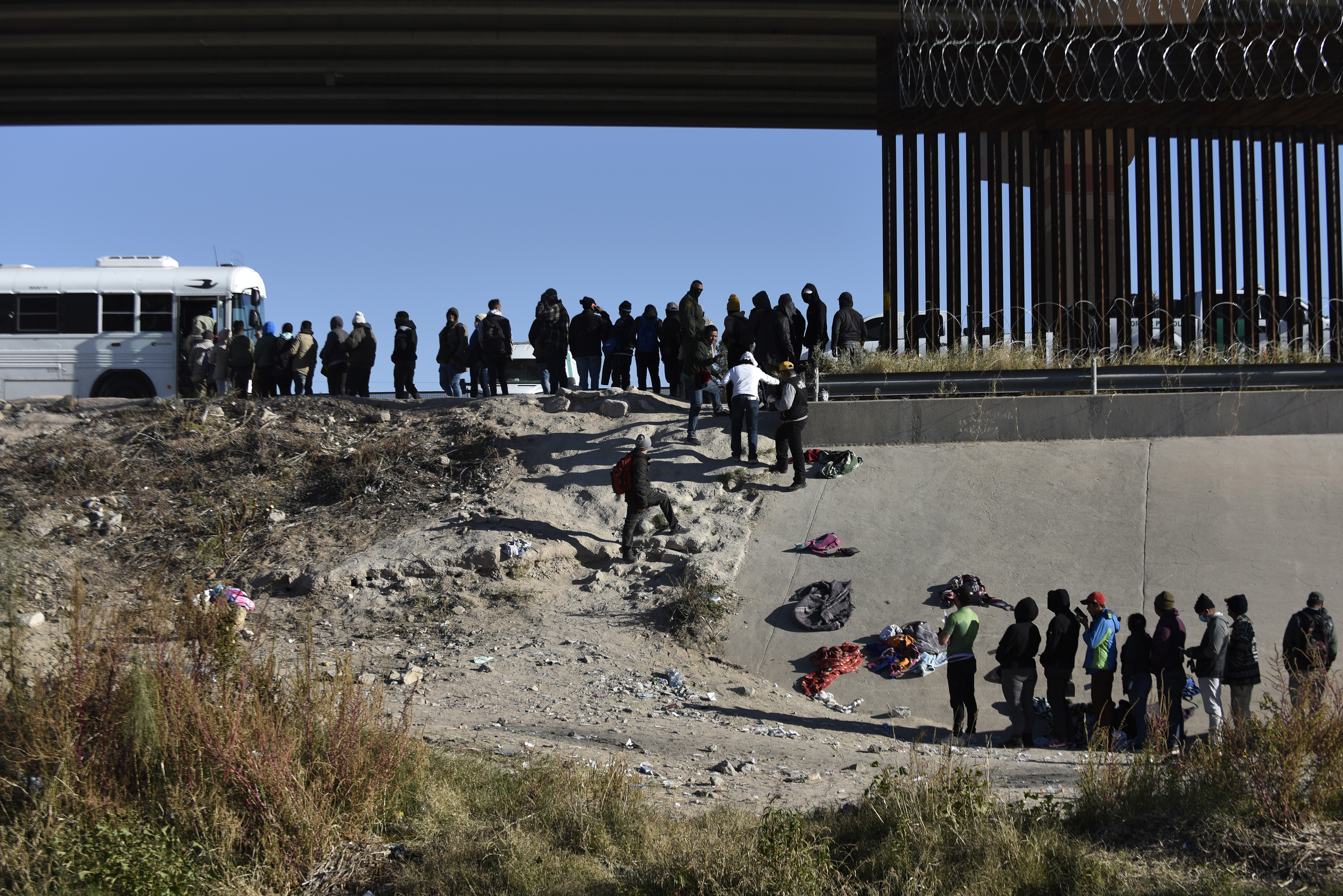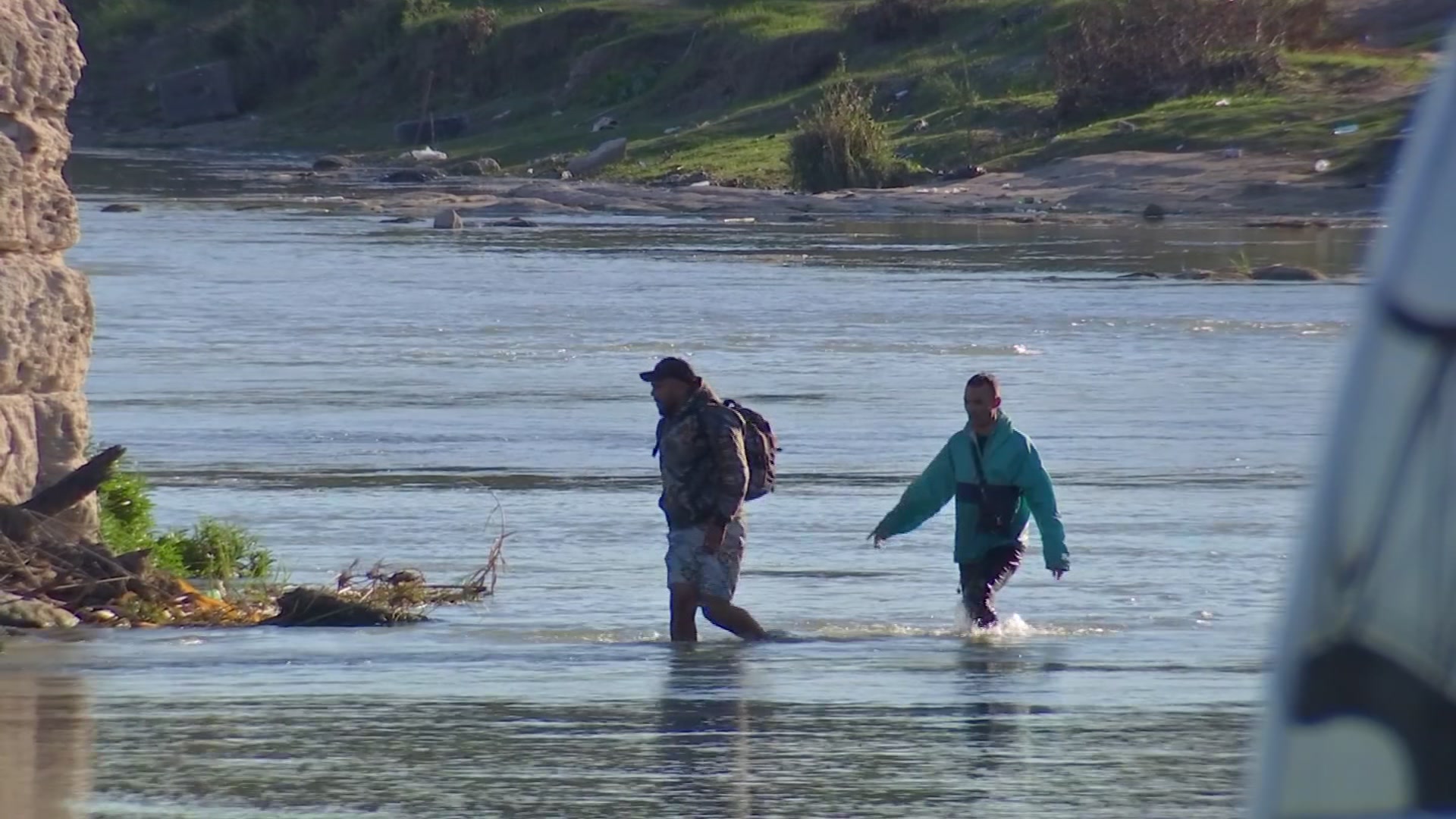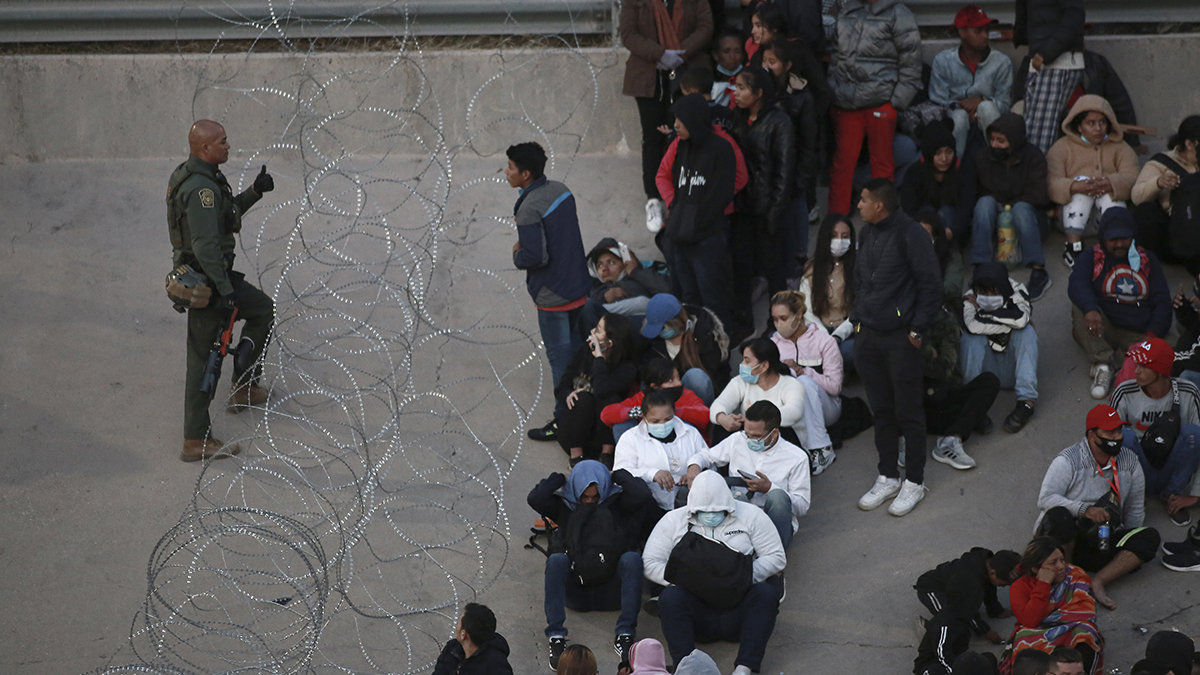The so-called ‘Steel Wall’ of shipping containers and razor wire lines part of the riverbank in Eagle Pass, Texas, and is designed to deter undocumented migrants from illegally crossing the Rio Grande along that area.
The surge of migrants crossing the border continues, however, despite the barriers and asylum restrictions that remain in place.
NBC 5 spent two days in Eagle Pass documenting the current surge of migrants. We watched as another group of weary travelers took their first steps on U.S. soil late Wednesday afternoon, surrendering to immigration officials. An agent grouped the men, women and children by nationality: Cubans, Nicaraguans and Dominicans.
A Cuban migrant sat and said a prayer of gratitude.
“I’m very happy. It was a lot of work but here we are in the Land of the Free,” she said.
Among their group is an older man with a prosthetic leg who was carried throughout their journey.
“It is a dream come true,” said another Cuban woman in near-perfect English. “I left my family behind, everything. My heart is there but my freedom is here.”
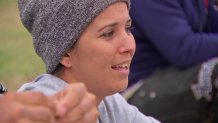
More than 1,000 migrants crossed the border from Piedras Negras, Mexico, into Eagle Pass, according to U.S. Rep. Tony Gonzales (R-TX 23rd District) who represents the region.
A group of 140 migrants made their trek at about 8 a.m., including a woman from Honduras who carried her five-month-old son who was born in Mexico.
A few hours later, we saw two families from Nicaragua walking along busy Highway 277 near the Maverick County line.
Abel Miranda carries his 2-year-old granddaughter in his arms. Her nose is runny and she’s wearing gloves two sizes too big. Miranda’s 11-year-old daughter walks next to him. They hope to reunite with his wife in California.
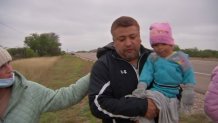
Hunger and political instability in their home country, he said, led them to risk it all.
“We’re only looking for new opportunities as human beings,” said Miranda.
Migrants who surrender to CBP agents are bussed to processing centers nearby and vetted. Some are deported while others are released with the expectation to make their case for asylum in immigration court. They are then transported to ‘non-governmental organizations’ known as NGOs.
I don’t think people in other states realize the volume, the continuity of it. The frequency. It’s just every day. Every day. If you would have asked me last year that we would’ve doubled the migrants coming through, I would have been in disbelief.
Tiffany Burrow, operations director for the Val Verde Border Humanitarian Coalition
The Val Verde Border Humanitarian Coalition is an NGO in Del Rio. Operations Director Tiffany Burrow said they are caring for about 400 migrants a day – serving as a brief stop for migrants to eat, phone sponsors in the U.S. and book flights or bus tickets.
The shelter then busses migrants to San Antonio where prices are often less expensive.
Burrow said they’ve received about 50,000 migrants this year alone.
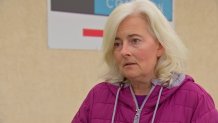
Congressman Gonzales described the situation along the southern border “as if a hurricane is hitting us.”
“It’s heartbreaking. It’s frustrating,” he said. “I’m glad you’re covering the story because many Americans don’t realize what is happening on the ground.”
Gonzales said more action needs to be taken including adding court proceedings along the border and allowing asylum claims to be decided in days instead of years.
“If they do not qualify for asylum, they get sent back to their country of origin,” said Gonzales.
The Republican leader said once the immediate flow of migrants is stopped, a long-term solution should include real immigration reform with work visas but no amnesty.
Gonzales acknowledged the precarious situation facing the U.S. The current surge includes migrants from countries the U.S. has somewhat icy relationships with, including Nicaragua, Cuba and Venezuela. These countries, he said, are unwilling to aid in a solution, even barring their citizens from returning.
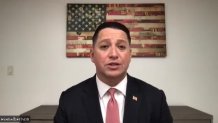
“These countries have little to no relationships, diplomatic relationships, with [the U.S.]. These countries know that and they’re allowing many of their people to go on this dangerous trek, so it is up to the State Department to have communications with these countries and have solutions or third party countries.”
Previous administrations have negotiated agreements for countries like Mexico and Guatemala to accept migrants, he said.
Gonzales is especially critical of Secretary of State Antony Blinken.
“His job is to go to these foreign countries like Cuba, Nicaragua, Venezuela, Honduras and build different packages to go: ‘You will accept your people that do not qualify for asylum’ and that hasn’t been done,” said Gonzales.

